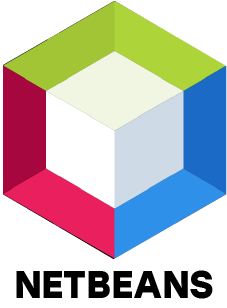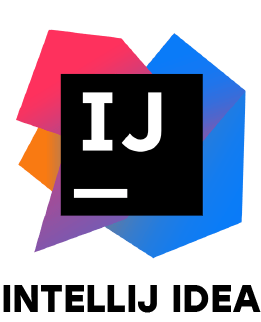The Java class contains a basic to a higher level, After the training in the IT industry, we provide 100% placement assistance. Onward Academy is the Best Java Developer Computer Training Institute for students who have the expertise to work with Live PROJECT. An enterprise MNCs. The Java Course in Noida, starts with Core Java, which equips students with the basic Java element. In order to grasp how Java may be utilized in the practice world our skilled trainer's aid students to undertake modest projects. The course starts with Core Java, which equips students with the basic Java element. In order to grasp how Java may be utilized in the practice world our skilled trainer's aid students to undertake modest projects. For big IT organisations worldwide, Java is the most chosen alternative. However, if you are to live up to changing demands of the IT sector and make a difference, you must have the skills to become a Java professional
Additional Info
Why you choose java?
Besides the above-illustrated reason, there as a collection of alternative reasons that creates Java artificial language a compelling alternative for developers. Here could be a temporary on the seven reasons that lure users towards Java.
- An Object-Oriented artificial language :
Java is object destined suggests that it follows a programming vogue that features ideas like category, object, inheritance, etc. This enhances the committal to writing structure creating Java extremely relatable. Additionally, developing OOP based mostly apps is less complicated because it helps keeps the system versatile and extensive. Java conjointly promotes the utilization of object-oriented style patterns creating it appropriate for developers to figure on code with this language.
- Open supply artificial language :
As declared earlier, Java is open supply that means there's no demand to put in writing a code from the scratch. The ASCII text file is created obtainable for the developers, so they may spread an equivalent and use the code as per their needs. Java conjointly offers a collection of outstanding programming tools creating it a lot of easier for developers to figure on an equivalent. The artificial language conjointly offers an excellent set of open supply libraries that makes the event efficient and quicker enough to implement.
- Exceptional Community Support :
Just like mechanical man, Java conjointly enjoys the support of extended community that helps resolve problems as before long because it seems. The developers’ community welcomes support and interest of like developers to assist their network grow extensively. The thriving community shares the data and therefore the connected data to assist budding developers enhance their committal to writing skills. One will either take the support from the community on a problem or discuss an equivalent on the platform itself.
- Java Has wealthy genus Apis :
API or application programming interface helps produce software system and apps by permitting the usage of a range of tools. Now the most effective factor regarding Java genus Apis is that developers will use an equivalent albeit they're not abundantly conscious of the inner implementation of committal to writing structure. Java genus Apis as compatible enough which makes it a right suitable use with alternative codes. Moreover, there as quite 4500 genus Apis obtainable to use and so the developers will select anyone as per their specific needs. These genus Apis supply virtually everything from XML parsing to utilities and to decibel connections.
- Versatile artificial language :
Java is extraordinarily versatile that means it are often used across platforms. The artificial language is platform freelance for various OS which is why it's majorly likable by developers regardless of the several packages.Java’s widespread taglines says “right once and run anywhere” meaning Java byte codes are often run on any hardware. Put simply, it suggests that associate app created in Windows setting will simply run on the other platform. This gives nice flexibility to the developers in terms of implementation of one code on totally different platforms.
- Excellent Documentation Support :
Javadoc is a wonderful piece of documentation that gives extended data on Java extensions to the developers. Javadoc is advisedly developed creating committal to writing easier for developers and to use a collection of sophistication simply.
Roles and Responsibilities :
The roles and responsibilities of a Java developer/engineer can vary greatly counting on the corporate and specific position. Here square measure some typical responsibilities :
- Designing, implementing, and maintaining Java applications that square measure typically high-volume and low-latency, needed for mission-critical systems
- Delivering high convenience and performance
- Writing well-designed, efficient, and testable code
- Conducting software system analysis, programming, testing, and debugging
- Managing Java and Java EE application development
- Ensuring styles befits specifications
- Preparing and manufacturing releases of software system parts
- Transforming necessities into stipulations
- Support continuous improvement
- Investigating alternatives and technologies
- Presenting for discipline review
Required skills :
The Skills needed for Java Developers will be categorized as follows :
1. Java Developer Skills (Technical)
2. Java Developer Skills (Soft Skills)
3. Java Developer Skills (Technical)
- Design Patterns in Java :
Design patterns in Java area unit commonplace solutions followed to resolve routine issues faced in package planning life cycle. Each style Pattern acts as a blueprint that permits customization to resolve any given style drawback in any code throughout the event of package modules.
- Abstract categories in Java :
Abstract categories in Java facilitate the developers to realize abstraction. Abstraction in object-oriented programming reduces code quality by showing solely the relevant details of the objects employed in the program and enhances code readability. We'd like Abstract categories in java for the subsequent reasons. Interface in Java Interface is a complicated level of achieving abstraction within the Java artificial language. The interface in Java permits a higher and economical means of achieving abstraction in Java.
- Serialization in java :
Serialization in Java may be a construct that deals with the conversion of objects into a computer memory unit stream to move the java objects from one Java Virtual Machine to the opposite and recreate them to the first kind. serialization permits developers to fulfill numerous factors in period programming.
Frameworks :
1. Spring Boot :
Spring Boot could be a strong, back-end framework meant to form complete Spring-based Applications that as able to run. It's designed to permit you to start with as very little fuss as doable and also the applications created demand bottom Spring configuration.
2. Spring :
This can be another back-end framework that's quite powerful. It's widespread as a result of it provides in depth programming and configuration for all the Java-based enterprise applications, no matter the readying platform used. The foremost vital feature of this framework is infrastructural support; at the applying level, this can be a flexible framework operating with all readying environments, and it's specific to none.
3. Hibernate :
This can be AN object-relational mapping (ORM) framework. It's powerful as a result of it deals with success with the mismatching in information handling. This framework is especially useful for all those operating with relative info because it facilitates communication with any database with very little alterations within the code.
4. Struts :
This can be a free, ASCII text file, MVC, enterprise-level framework. Struts could be a Java net application with full options, sanctionative the creation of easily-maintained applications. No fuss, no hustle. There as 2 versions of the framework: Struts one and Struts a pair of. Struts a pair of is formed of Struts one combined with the webwork framework of OpenSymphony.
Tools :
JAVA is the ever-green programming language for the aim of developing applications. Today, this programming language has several tools for the aim of developing the appliance therefore these days during this article, I want to list the popular Java application tools during this article. I listed a number of the foremost fashionable tools utilized by Java application developers. therefore, allow us to see these tools concisely regarding Java application tools employed in application development.
1. Eclipse :
Eclipse is an integrated development atmosphere (IDE) that uses Plugins for nearly each language. Currently, it's created of over one hundred fifty comes covering totally different areas of package development. It's a well-liked Java internet tool. To learn a lot of regarding on-line Java Application tools and alternative nice options of Java, you'll inscribe for a live demo on Java on-line coaching.
Tool Features :
- It is a cloud-based platform that runs open supply development.
- In addition to Java application, it additionally supports alternative languages using plug-ins like C, C++, Perl, Python, and JavaScript.
- It has Java development tools for SDK, that successively assists Java developers and supports tom, GlassFish, and plenty of alternative servers of development.
- This tool is progressively normally employed in organizations everyplace.
- It simplifies, makes code straightforward to grasp and rectify.
-Pros :
- Simple to compile, write and rectify.
- It makes Production stage producing extendible and versatile.
- Platform Crossing.
-Cons :
- You would have to be compelled to load plug-ins to support alternative languages.
- Graphical interface plugins sometimes solely operate the Java Eclipse or the Mobile Java Application.
2. NetBeans :
NetBeans is another IDE want to produce codes for the Java application. It runs on nearly any Windows, Linux, Solaris, and macOS platform. Like Eclipse, it's additionally associate open supply platform and may be wont to build alternative programming languages like C, C++, JavaScript and then on. Take your career to new heights of success with Core Java coaching.
-Features :
It is a framework wont to produce a Java application Used for process and loading knowledge of some kind, Supports piecemeal collection. It is ASCII text file Tool.
-Pros :
- It has tools for Integrated growth.
- It will have associate IDM, i.e. Integrated Java Programming Modules.
- It has a feature of drag and drop as Buttons and Text boxes.
- GUI is straightforward to create for mobile applications.
- When debugging, it offers hints on application optimization and adds the correct code itself.
-Cons :
- Takes a lot of loading time compared to alternative day.
- The division of memory is over alternative IDE.
- To get in-Depth data on Java you'll inscribe for a live demo on core Java on-line coaching
3. JUnit :
It is a Java programming language analysis Platform. It's associate ASCII text file Testing system that
linked at the time of compile. It's used for building take a look at Cases.
-Features :
It is associate ASCII text file platform want to write take a look at cases and to run take a look at cases.
You can simply and effectively write the codes to ascertain. Has taken a look at characteristics that embrace take a look at cases and alternative take a look at fits. If they take a look at succeeds, an inexperienced bar is shown and a red bar is shown if they take a look at fails.
Tests Run mechanically and supply immediate results.
-Pros :
- It supports code regression.
- Good code comprehension and take a look at cases.
- It Helps in putting in place code behavior.
-Cons :
- No guarantee that the quality is higher.
- Support even those bugs you've noticed.
4. Apache Spark :
This is an ASCII text file platform, used across distributed machines for large-scale applications.
It is additionally referred to as a multiprocessing system which may manage workloads associated with real-time processing. It's developed by Hadoop Systems to hurry up process work. It's written for the interaction with the spark core engine within the Scala language. It's quicker than MapReduce, and the reason is Apache Spark is running.
-Features :
- Design is advanced.
- The high speed of the information process is 100x quicker in memory and 10x quicker on disk.
- Codes as reusable.
- Fault-tolerance used.
- Used each for batch and processing in a time period.
- Supports numerous languages like Java, Scala, Python, etc.
- Built-in Hadoop systems.
-Pros :
- Very fast and dynamic.
- Machine learning, streaming, and Sparks.
-Cons :
- It doesn't have a file management framework, it's combined with Hadoop.
- Can’t do this for a small file and there as problems.
- There is less formula count.
5. Jenkins :
It is used for analysis associated is an ASCII text file platform written within the language of Java programming. It's a server-based automation framework that runs a Java application servlet like Apache tom. This program helps and automates the developer to spot and fix defects within the code.
-Features :
- Quick, easy, ASCII text file, protractile tool.
- Plugins aside that as, in effect, straightforward to use.
- Fast reading and upgrades.
- The ASCII text file platform is free.
- It facilitates construction of pipelines, too.
-Pros :
- It is versatile and optimized to figure effectively with all major instruments.
- It has an enormous array of plug-ins.
- It is an ASCII text file, and simple to grasp, comprehend and use.
- It Has intrinsic genus APIs.
-Cons :
- The cost of the Jenkins program cannot be calculable.
- No developer collaborates with another team member.
- Control of one user.
- There are plugins however it's not enough to prevent the device reading.
6. Clover :
Clover could be a Java tool that produces reports of code coverage from unit tests. It is dead in Ant, Eclipse, or champion as a plug-in. It can even be wont to collect Integration and take a look at coverage knowledge.
-Features :
- Open supply and liberal to use a Java application.
- terribly straightforward to use because of on-the-fly computer memory unit code.
- Full coverage and metrics for the most recent take a look at run.
- take a look at optimization makes it painless to run take a look at suite before every arrival.
-Pros :
- Ambient open supply.
- Program modules, Library modules, and take a look at modules Are enclosed.
- Depending on frills.
- The compilation is swift.
- This is used for System Testing additionally.
-Cons :
Developers have to be compelled to keep upgrading to the most recent automaton Patch in any respect.
Takes time to open the Automaton Studio IDE a touch bit a lot.
Certifications :
This is one among the foremost standard Java certification courses on Udemy with over 124,897 reviews and a four.6/5.0 rating. Over 506,000 students have registered during this course. It's instructed by Tim Buchalka, a widely known Java pedagogue on Udemy’s platform. It is a comprehensive course for learning Java. It provides over eighty hours of quality content and thirty-six cryptography exercises. All major ideas like information Structures, OOP, Core Java Fundamentals, Multi threading, Networking, File IO, Java Collections, Database, Java 8, Unit Testing and new Java eleven options as fantastically coated during this course. In conjunction with ideas, it additionally covers new tools like Eclipse IntelliJ plan, hotshot etc. that are primarily used for Java Development. The course content additionally covers eight topics of OCAJP that is why it's an extremely counseled Java certification for developers getting ready for the 1Z0–808 certification test.
Finishing this Java programmer’s certification, equips you well to look for your 1Z0–808 test. Currently, this Java Certification prices simply $10.99 that may be a pretty negotiate as at the start it had been priced at over Rs.100. This Java certification course is obtainable by Microsoft, out there on the e-learning platform, edX. It focuses on teaching sensible practices. For instance, teaching however a Java code ought to be organized, and the way trade standards are applied because the code is developed. It additionally includes techniques for victimization one- and two-dimensional arrays additionally to totally different implementations of the Java List interface.
Benefits :
1. High Security :
Java provides sturdy support to safeguard a computer code app from malware, hacking attacks, and similar threats. It's unremarkable employed in the industry, mobile firms, decision centers, etc. because of the high security it offers. A number of the intrinsic security measures that Java offers area unit cryptography, a sandbox surrounding and advanced security mechanism for access management, authentication, etc. Also, there's an idea referred to as ‘exception handling’ in Java application development that helps in handling errors and exceptions and therefore reduces the threat of system crash.
2. Excellent movability for Client-centric Apps :
Java products are deployed over a variety of operating systems. There's no need to be compelled to modify the prevailing hardware as Java operates seamlessly on completely different platforms in numerous environments. Movability is one in all the most important blessings of Java. Also, Java offers nice flexibility of integrations and a variety of choices to mildew the apps in terms of options, hardware, technology, support, etc. as per the business wants. So, this artificial language is the favorite alternative for pretty much each Java developer. Advanced business logic implementations for developing client-centric apps is developed exploitation Java. Java apps will offer extraordinary performance by utilization of accommodate improvement, just-in-time compilation, multi-threading, garbage pickup, etc.
3.Brilliant User-experience :
The applications that area unit easy, partaking and attention-grabbing, area unit wide acknowledged everywhere the globe. Java apps have one in all the most effective user-experiences (UX) that allows developing high-quality, easy and enticing apps for a good vary of audience.
4. Integration with multiple users concurrently :
Some businesses have to be compelled to often move with many purchasers at the same time on a daily basis. So, the business application ought to perform quicker and swimmingly, notwithstanding there's a big load on the app. Java apps are unit responsive within the front-end and sturdy at the back-end. This ensures effective implementation of the resource-consuming operations like information retrieval whereas giving responses to the queries of the users. This is employed by several users at constant time with most stability. Many business operations are at the same time dead with these apps.
Pay Scale :
Average Java developer in India earns a regular payment of Rs 443K associatenum|once a year|every year|each year} or an hourly regular payment of 1.75Lakhs. The regular payment might vary from 4Lakhs to approximately Rs. 12Lakhs every year looking at factors like the location, an expertise level, a company profile, etc.








































